We’ll start with an interesting story that Dr. Neal Barnard shares in his book “21-Day Weight Loss Quickstart” about a man who was raised in Asia and came to the U.S. to go to college. He began having gas, bloating, cramps, and diarrhea. His doctor thought he had a parasite, but found nothing after a series of tests. Meanwhile, the symptoms continued. After seeing various specialists, there was still no explanation for the man’s problems and his symptoms continued. He was miserable!
After struggling for two years with his intestinal problems, a new doctor asked the man a few simple questions about his diet. Did he drink milk back home? No. Milk was not part of his culture other than breast-feeding. Has he been drinking milk since coming to the U.S.? Yes.
The doctor suggested he stop drinking milk, and within two days, his symptoms completely disappeared!
It’s not natural for us to drink milk other than our own mother’s breast milk during infancy. We are the only species that drinks milk after being weaned and we are the only species in nature that drinks milk from another animal.
Lactase is an enzyme that our bodies produce to digest the milk sugar lactose. Our bodies normally stop producing lactase after we’re weaned because in nature, we no longer require lactase past weaning. Once our bodies stop producing lactase, dairy consumption is likely to cause gas and pain. In other words, we develop lactose intolerance.
By continuously drinking milk and/or consuming other dairy foods after being weaned, we trick our bodies into continuing to produce lactase well past the time that it normally would have stopped. Some people produce lactase well into adulthood and tend not to have intestinal discomfort from drinking milk or consuming dairy.
However, most people develop lactose intolerance sooner or later. That’s because we were not designed by nature to drink milk or consume other dairy foods past infancy.
Milk is the perfect food…for a calf. Milk is loaded with growth hormones (IGF1) that are designed to rapidly grow a calf to ~1,000 lbs. So what do you think milk does for our bodies? It “beefs us up”. In other words, it makes us fat. Plus, it loads our bodies with growth hormones, something tumors love because growth hormones help tumors grow quickly!
Here’s something else to consider: we’ve all been told over and over to drink milk to get our calcium so that we can develop and keep our bones strong and healthy. Here in the U.S. we are among the top in the world in terms of dairy consumption, and according to that logic, we should also be among the top in the world in terms of strong, healthy bones.
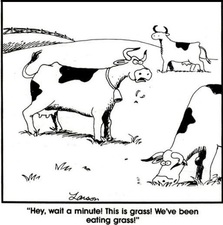
That’s in part because our bodies don’t absorb as much calcium from milk and other dairy foods as we do from plant-based foods. Animals, including cows, do not produce calcium. Cows get their calcium from eating grass. And if cows are not eating grass, as most are not these days, then they get their calcium from supplements, typically made from limestone (a rock) and shells (same as the supplements sold in stores). Calcium from these sources is less absorbable and less bioavailable compared to calcium from plants such as grasses, greens, and beans. Plants get calcium by absorbing it from the soil they’re grown in, making the calcium in plants more readily absorbable by our bodies.
It’s the dairy industry that’s been telling us for generations that we have to get our calcium from milk. They just happen to ignore two little details that they don’t want us to know about, including that milk is not the only source of calcium, and that drinking cow’s milk is indeed not natural for humans.
So if dairy is not the best source of calcium, then what is the best source? It turns out that plant-based foods are loaded with calcium, especially leafy greens and beans. There are several great plant-based sources of calcium, including tofu; edamame (fresh soy beans); leafy green vegetables such as kale, spinach, collard greens, chard, mustard greens, and turnip greens; beans such as black-eyed peas, chickpeas, black beans, and pinto beans; and nuts such as almonds, walnuts, pecans, macadamia nuts, and cashews.
Many whole, plant-based foods provide us with more calcium per 100 calories than milk and are the healthiest sources of calcium. For example, 100 calories of whole milk (2/3 cup) has 188 mg of calcium. Compare that to the calcium levels in 100 calories of some leafy greens: a cup and a half of spinach, which would make a very nice spinach salad, has 216 mg, and likewise, a cup and a half of kale has 271 mg. Even a whole orange has approximately 60 mg of calcium!
Beans are also great plant-based sources of calcium. One cup of boiled beans such as regular white beans has 161 mg of calcium, small white beans has 131 mg of calcium, navy beans has 126 mg of calcium, great northern beans has 120 mg of calcium, yellow beans has 110 mg of calcium, regular black beans has 239 mg of calcium, and small black beans has 102 mg of calcium.
In particular, soybeans and soy products are especially good sources of calcium, including boiled soybeans (175 mg calcium/cup), roasted soybeans (237 mg calcium/cup), tempeh (184 mg calcium/cup), calcium-enriched soymilk (299 mg calcium/cup), tofu yogurt (309 mg calcium/cup), and frozen, prepared edamame (98 mg calcium/cup). Raw regular and firm tofu prepared with calcium sulfate top the list with 434 and 861 mg of calcium per half cup respectively!
There are many great ways to enjoy beans and greens together. Try a black bean burger with tomato slices and a few kale leaves, or a tofu scramble with wilted spinach. How about an arugula salad with chickpeas and quinoa or a bean burrito with brown rice and Swiss chard. One of my favorites is a warm whole grain tortilla topped with about a quarter cup of hummus, a large handful of arugula, kale, or spinach, and a sprinkle of rice vinegar, then folded in half like a taco.
Back to the question: is it just a myth that we need dairy in order to be healthy and get enough calcium? It turns out that it is a myth. Not only can we get all the calcium we need from whole plant-based foods, those same plant-based foods promote good health and protect us from chronic degenerative diseases.

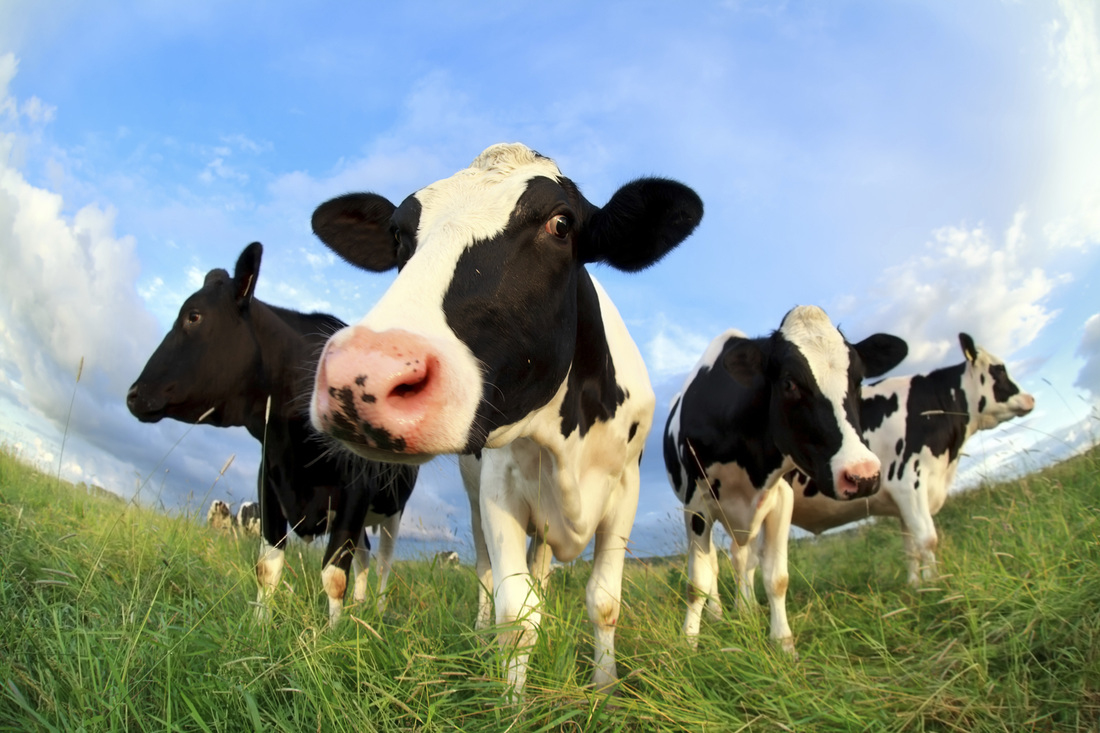
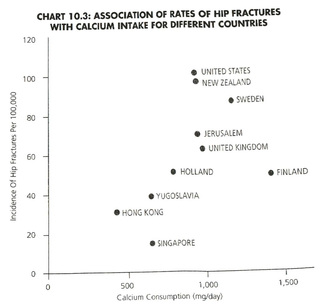
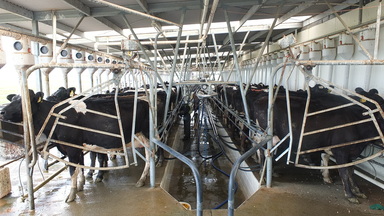

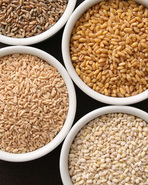
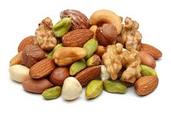
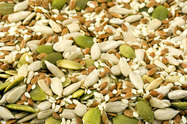
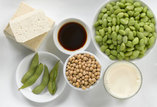
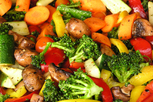
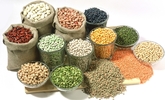

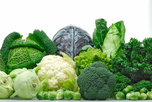



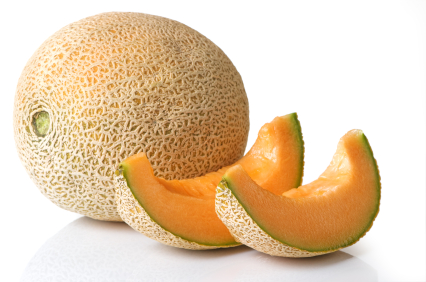
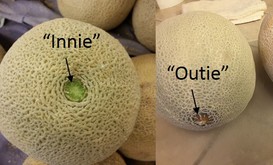
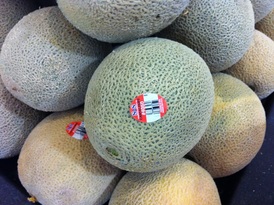
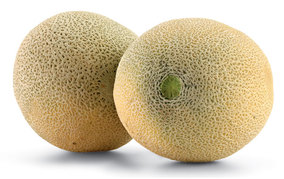
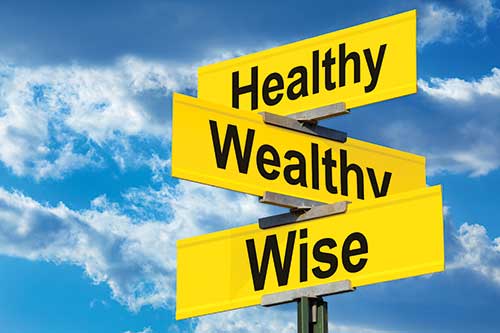


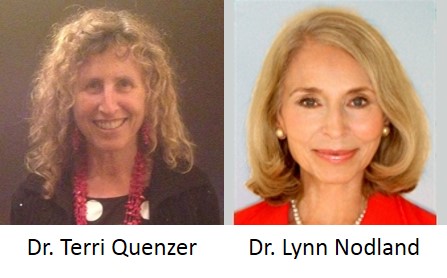
 RSS Feed
RSS Feed